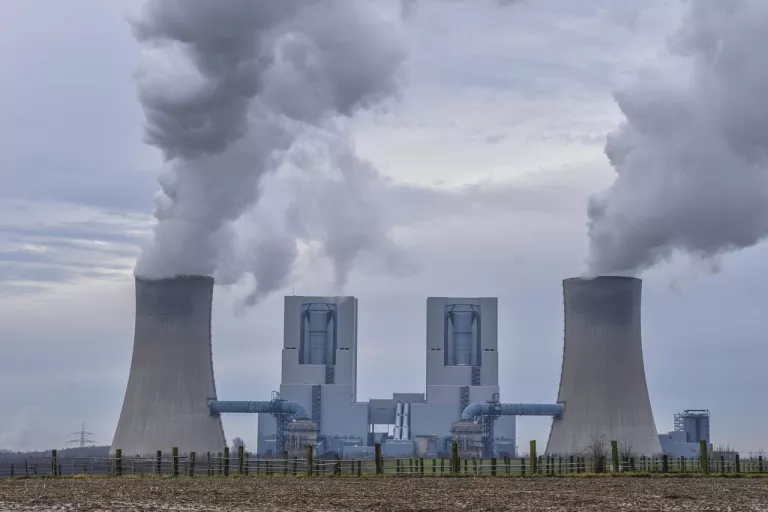The IRA Brings Rock Bottom Renewable Prices for Energy Utilities

By Ty Gorman, Kansas Beyond Coal Campaign Representative for Sierra Club
Pronouns: he/him/his (learn why I'm listing my pronouns)
Reach out to me at ty.gorman@sierraclub.org.
The federal funding from the last two years brings an amazing number of opportunities to force our leaders to act in the near future. We will demand that your electric utility plans the clean energy future your community deserves.
The Inflation Reduction Act (IRA) has unlocked a wealth of opportunities to make new alliances and advocate for clean energy investments, especially investments managed by the frontline and fence-line communities of color that have been most negatively impacted by fossil fuel pollution. The Sierra Club Beyond Coal Campaign can support opportunities across Kansas to secure our clean energy future in 2023. Join us!
Your utility regulators have refused to use federal clean energy investments to reduce customer bills in 2023. Instead, they are planning for a rate hike on KS customers to pay for more dirty fossil fuels. Utilities want to raise prices even though grid modeling from regional and national groups prove that they could provide reliable electricity with reduced prices by retiring expensive coal and investing in clean energy.
The KCC has not offered any opportunities for public participation, outreach, or comments from customers that will be impacted by Evergy’s proposed rate increases in 2023. Please tell me what your local leaders should hear about utility policy.
Policy Wonks, this is for you
It’s time for our city and county Kansas representatives to get involved in utility planning! The Inflation Reduction Act (IRA) has provided funding to pay for utility debt in the short term and reduce customer bills through federally funded clean energy investments in the long term. Utilities have the ability to switch from coal and gas to cleaner energy sources while lowering electric bills, maintaining grid reliability, and reducing pollution that harms public health and our environment. Local governments should require transparency and customer outreach to explore opportunities for bill and pollution reduction in utility planning. Plans need to be made with the community now to access federal funding opportunities.
Utilities and regulator staff support fossil fuels even though they’re more expensive than the same amount of clean energy under extreme weather reliability conditions. Fossil fuel and utility industry interests have infiltrated the SouthWest Power Pool (SPP) to fight against investments in transmission, efficiency and clean energy that should be reimbursed by the federal government and reduce bills for customers. BPU and Sunflower maintain their coal plants even though they’re much more expensive than equally reliable clean energy because SPP has rules that discriminate against clean energy. KCC Staff and Evergy are both failing customers by requiring an incomplete model for clean energy and energy efficiency benefits. Organizations representing customer interests have provided hundreds of pages of modeling and comments proving that the lowest cost, most reliable energy grid for customers requires investments in distributed energy, transmission infrastructure, efficiency, demand response, solar, wind and storage, while retiring coal by 2030 with no new unreliable gas.
Local governments should require utilities to conduct a full retirement study of coal plants using transparent data and assumptions. This analysis should evaluate the economics of continuing to operate its coal plants relative to retirement, identify the optimal retirement date for each of its coal-fired power plants, and design an optimal future resource mix to meet the Company’s projected load. Given the poor to marginal economics of Jeffrey Units 1-3, Iatan Unit 1, or La Cygne Units 1 and 2, Nearman and Holcombe plants, utility regulators should signal that they will not be inclined to approve costs for any fossil fuel capital investments until optimal resource replacement plans that benefit customers are approved.
Utilities have likely underestimated the investments they will require maintain to their coal plants and comply with future environmental regulations, overestimated the future capacity factors of fossil fuel plants and therefore overestimated future market revenue of its units. The unrealistically long remaining lifetimes set for coal plants in Kansas go against all national economics and international climate requirements.
Every year, Evergy spends about $500 million, and BPU/Sunflower $50 million in customers' money to import coal from Wyoming. That’s just the cost for coal to burn, not the other costs that go into these facilities. Imagine the benefits if these utilities were to spend that on reducing bills through efficiency and renewable energy.
Much of the recent rate increases from utilities is to cover the costs of skyrocketing gas prices during and after the polar vortex in February 2021. Ratepayers shouldn’t solely pay for volatile fossil fuel prices because utility executives gambled on coal and gas when a combination of fixed-price resources are available that can meet customer demand, including wind, solar, and efficiency. No utility in Kansas has met its burden of proof to demonstrate that continued investment in coal and gas is the prudent, least-cost option to provide reliable power to ratepayers. We need help from our political leaders to force utilities to put customer health and costs ahead of revenue increases.